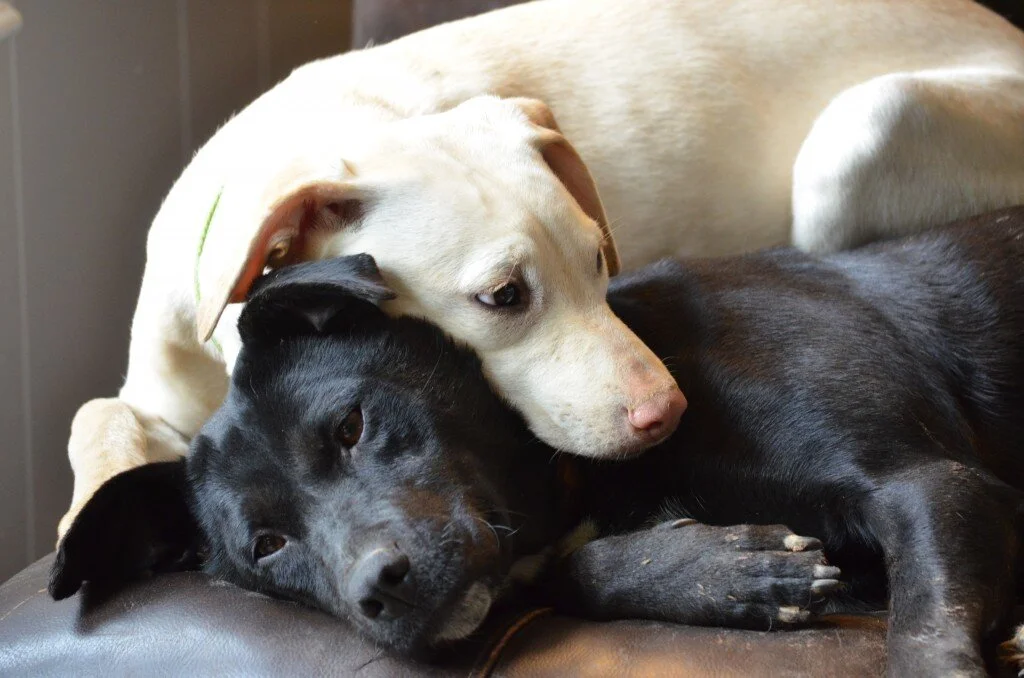Saying No to Smith Street
I watched the road with a keen anxiety. A cold front was moving through Middle Tennessee, and although the sun blared on our rural street, the wind was frigid.
Bernice was coming to the Farnival to visit Dawn. Bernice is one of the women that fed Dawn on Smith Street. Since we caught her, Bernice texts or calls every week, asking about her progress, wanting to know when she’s coming back.
I needed to explain it wasn’t going to happen. A text would have delivered the message, but I felt like I owed Bernice closure, a face-to-face explanation. The problem was I had no idea how to tell her I wasn’t bringing the dog she loved back home.
After seven months and two litters (totaling 19 puppies) we had finally caught Dawn, a feral lab mutt, on a drizzly, black Christmas Eve morning. Dawn had lived her entire life roaming around Smith Street, a rough neighborhood in Springfield, TN, where drug deals take place as openly as checking the mail.
ICHBA used every trick possible to catch Dawn; we drugged, chased, trapped, tracked and stalked her, pulling both her litters before the pups were even weaned, then using them as bait to lure her out of hiding. We failed so many times that we came close to giving up.
Our biggest obstacle was Dawn’s well-founded fear of humans. Our second hurdle were the women that lived on Smith Street – Bernice, Martha, and Sandra, three older ladies with big hearts and antiquated beliefs that feed all the sickly and overproducing strays living in their ghetto. Even though they had never touched her, the women developed a strong attachment to Dawn and helped us only when absolutely necessary because they were afraid once we caught her, we wouldn’t bring her back. At one point, they even banned us from their property.
Over the past seven months, as odd as it sounds, I’ve started to really care about Bernice, a short, white-haired southern lady that spends her time with her diabetic blind husband or smoking menthols on her porch. Bernice honestly loves Dawn. No matter how many times Bernice thwarted our efforts to catch her, she still fed her for two years and contacted ICHBA when Dawn started dropping litters.
Bernice walked in the house wearing a camouflage jacket, sweatpants, and sandals with white cotton socks. She smelled like cigarette smoke and garlic. She may have once been pretty, but now, her pale blue eyes are the only part of her face still beautiful. Deep wrinkles groove the rest, her forehead, cheeks, and lips. Her fingertips are chapped and callused, her knuckles swollen.
“Is that [Dawn]?” Bernice asked, reaching for the now-healthy looking dog. Dawn beelined it for the couch, nails scratching hardwood as she scrammed.
Bernice drank her coffee with a spoonful of sugar while I taught her how to gently approach Dawn, how to reach under her chin and not above her head. After a few minutes, Dawn allowed Bernice to sit next to her on the couch. It was the first time that Bernice had ever touched her. She beamed like she was looking at her newborn grandchild.
“When she coming back home?” Bernice asked.
We locked eyes and all those words I didn’t know how to say clogged in my throat. Bernice’s already wrinkled forehead creased even deeper. Her baby blue eyes widened and brimmed with tears. She knew. She had always known. I thought about her sad-looking house on Smith Street, her husband dying of diabetes, about how I was taking away an animal that she loved in the only way she could, and it still wasn’t good enough. I thought about about how sometimes doing the right thing didn’t feel right.
“I’m sorry,” I said.

